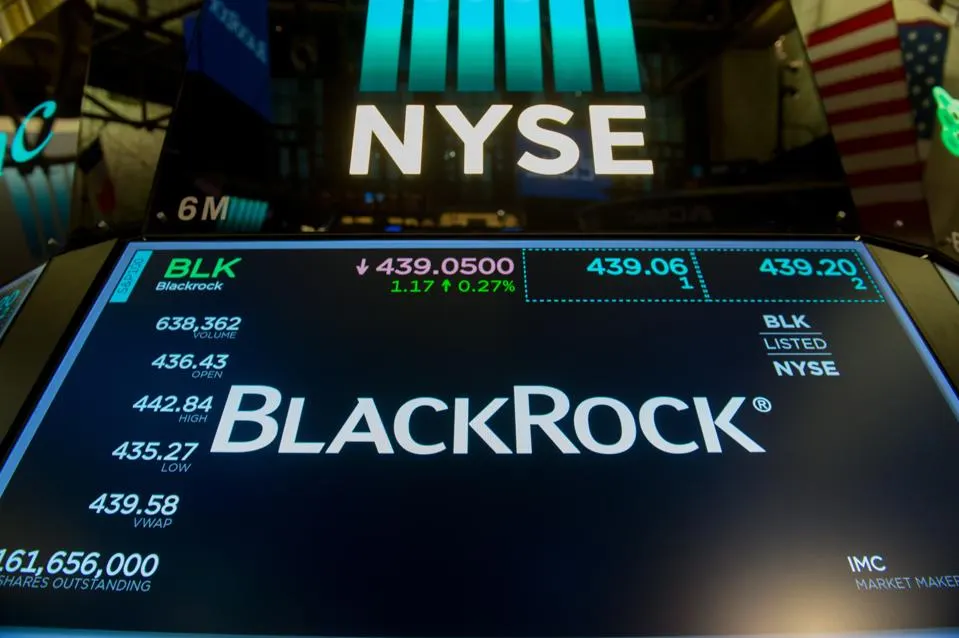Investing in BlackRock Stock: Is It the Right Move for Your Portfolio in 2025?

As we set our sights on 2025, investors are continually seeking opportunities that can enhance their portfolios. One contender that has garnered attention is BlackRock, a global leader in investment management. With its extensive range of investment products and innovative strategies, BlackRock not only helps clients navigate the complexities of the financial markets but also positions itself as a potentially lucrative asset. But is investing in BlackRock stock the right move for your portfolio this upcoming year?
As the financial landscape evolves, understanding the company’s performance, market trends, and economic indicators becomes crucial for informed decision-making. Whether you’re a seasoned investor or just starting, this article will delve into the factors that could influence your investment strategy, shedding light on the potential benefits and risks tied to BlackRock stock. Embrace the future of investing and discover if BlackRock can be your ticket to a prosperous financial journey in 2025.
The Importance of Diversification in Your Investment Portfolio
Diversification remains a cornerstone of prudent investing, especially in 2025’s volatile markets. By spreading investments across asset classes like stocks, bonds, and alternatives, investors can mitigate risks tied to sector-specific downturns or geopolitical shocks. For example, while tech stocks might slump, commodities or real estate could thrive, balancing overall returns. BlackRock’s iShares ETFs exemplify this strategy, offering exposure to diverse markets—from AI-driven equities to green energy infrastructure. Geographic diversification also matters: U.S.-focused portfolios benefit from adding international assets to hedge against regional volatility, such as EU tariff hikes or emerging market growth.
Analyzing BlackRock’s Financial Performance and Growth Potential
BlackRock (NYSE: BLK) reported robust Q1 2025 results, with adjusted EPS of $11.30 beating estimates by 12%, though revenue slightly missed at $5.28 billion. Assets under management (AUM) hit a record $11.58 trillion, driven by $84 billion in net inflows, particularly into ETFs and private markets. Strategic acquisitions like Global Infrastructure Partners (GIP) and Preqin aim to expand private market capabilities, targeting 20% of revenue from this segment by 2026. Despite a 15% stock decline year-to-date (trading at $920.53 as of May 6, 2025), analysts highlight BlackRock’s resilience through market cycles and its 3.49% dividend yield.
Key Factors Influencing BlackRock Stock Price in 2025
1. Private Markets Expansion: Success in integrating GIP and Preqin will determine fee growth and margin improvements.
2. ETF Dominance: iShares ETFs contributed $390 billion in 2024 inflows, but competition from Vanguard and State Street pressures fees.
3. Interest Rates: Rising rates could dent fixed-income AUM growth while boosting Aladdin’s risk-management demand.
4. Regulatory Risks: Scrutiny over ESG policies and antitrust concerns in private markets may limit strategic flexibility.
5. Geopolitical Tensions: U.S.-China trade disputes and EU regulations on asset managers could disrupt global operations.
Understanding BlackRock’s Investment Strategies and Offerings
BlackRock’s success hinges on three pillars:
iShares ETFs: Leading global ETF market with $3.1 trillion AUM, including niche themes like blockchain and carbon capture.
Aladdin Platform: A $1.6 billion revenue driver, this AI-powered risk-management tool serves 240 institutional clients, enhancing client retention.
Sustainable Investing: Allocating $20 billion to low-carbon projects and achieving net-zero operations by 2030 aligns with ESG trends.
Risks Associated with Investing in BlackRock Stock
1. Fee Compression: Intense ETF competition could erode margins, with fee revenue growth slowing to 5% YoY.
2. High Expenses: General and administrative costs rose 5% in Q1 2025, driven by tech investments and deal-related expenses.
3. Litigation Risks: Ongoing lawsuits over ESG disclosures and historical ties to fossil fuels may dent reputation.
4. Market Sensitivity: AUM growth remains tied to equity markets; a 10% market drop could slash fees by $1.2 billion annually.
Expert Opinions: What Analysts Are Saying About BlackRock
Analysts are cautiously optimistic:
Bulls: Citigroup and BofA cite undervaluation (P/E of 14.8 vs. industry 20.7) and a $230–$250 price target, citing Aladdin’s growth and private market upside.
Bears: Mizuho warns of “execution risks” in integrating acquisitions and margin pressures, rating BLK “Neutral” with a $114 target.
Consensus: Median target of $166.37 implies 7.3% upside, with 9 “Buy” and 13 “Hold” ratings.
Comparing BlackRock with Competitors: A Market Analysis
Vanguard: Leads in low-cost index funds but lacks BlackRock’s private market and tech offerings.
State Street: Strong in custody services but trails in ETF innovation and global reach.
JPMorgan Asset Management: Competes in alternatives but has half of BlackRock’s AUM.
BlackRock’s edge lies in its scale, diversified revenue streams, and tech integration via Aladdin.
Tips for Investing in BlackRock: Strategies for Success
1. Long-Term Hold: Benefit from dividend growth (3.49% yield) and compounding, reinvesting payouts during dips.
2. Dollar-Cost Averaging: Accumulate shares below $950 to mitigate volatility.
3. Options Strategies: Sell covered calls during earnings seasons (next report: July 22, 2025) to enhance income.
4. Sector Pairing: Balance BLK with tech stocks (e.g., NVDA) to hedge against interest rate risks.
Conclusion: Is BlackRock Stock a Smart Investment for Your Portfolio?
BlackRock offers a compelling mix of stability and growth, anchored by its ETF dominance and private market expansion. While near-term headwinds like fee pressures and high valuations warrant caution, long-term investors can capitalize on its $11.58 trillion AUM scale and ESG-aligned strategies. Analysts project a 2025 price range of $114–$250, making BLK a “buy” for patient portfolios. For those seeking exposure to global finance’s digital transformation, BlackRock remains a cornerstone holding.